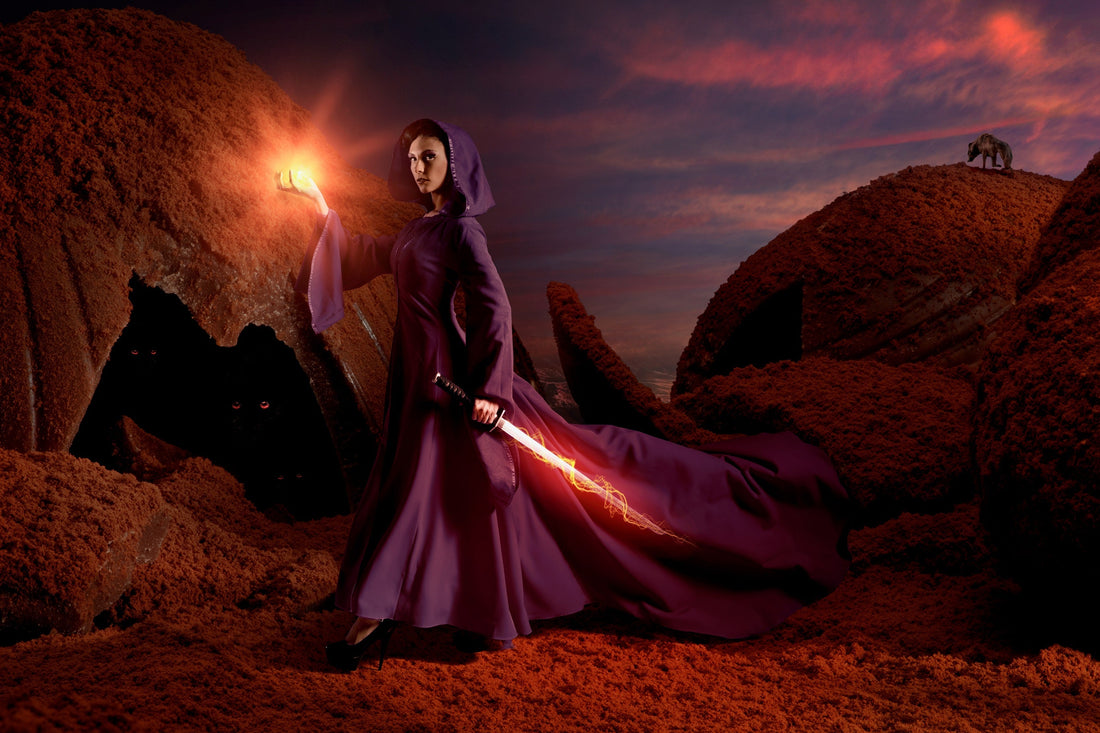
How to name your characters (and build your world at the same time)
What should you call your characters? Would an adventurer by any other name smell as sweet?
Names are often your readers’ first introduction to your characters, so it’s a great chance to set up (or subvert) expectations.
When coming up with names for characters (or places or items), there are two main things to keep in mind. One, how language works in your fictional world, and two, how language works in your readers’ world. These two elements will come together and guide your readers’ perception.
First of all, language in your fictional world sets the tone for the reading experience. If your names for things tend to be poetic and flowery, or blunt and direct, the same will likely apply to your characters. Consider your characters’ speech as well to keep this harmonious.
Second, your readers aren’t a blank slate. They are coming to your book with an understanding of real life language and references. You can use this to conjure associations, like how Terry Pratchett tells us the Nac Mac Feegle are fae versions of the ancient Scottish Picts purely through language rhythms and imagery.
Conversely, you can use real history as a springboard to go further into fantasy. For example, in Hayao Miyazaki’s movie Princess Mononoke, everyone is based on a fantastical or historical element that would be familiar to a Japanese audience. Even the word mononoke refers to wild forest spirits, which explains how San got her nickname. It also explains why she’s something of an ally to Ashitaka, whose culture seeks harmony with the forest spirits, and why she’s seen as an enemy by the others, whose culture favors industry and modernity.
For those of you who like to inject some comedy in your writing, names can be a fun source of a recurring joke. Consider Sir Apropos of Nothing, by Peter David. The MC’s name is Apropos. When he becomes a knight without owning any land, his name becomes Sir Apropos of Nothing. Then he journeys off down The Woad to Wuin. If you choose a comedy name, make sure it’s funny enough to be read a million times and not too distracting from your plot. And, of course, make sure the tone of your story is silly enough to allow it.
Another type of comedy name is the ironic name, such as Adorabelle Dearheart from the Discworld series. Yes, I’m going back to Discworld again, but Pratchett is a genius. With a name like Adorabelle Dearheart, you’d think of a sweet innocent Shirley Temple kind of girl. However, the Adorabelle we meet is a strict, no-nonsense older woman who doesn’t suffer fools lightly. Comedy can come from subverted expectations as much as it comes from abject silliness.
On a less silly note, remember that names have power. We’ve already talked about the power of names to communicate information to the reader about that character, but what about in-world power? Many fictional (and real life) cultures place extreme importance on names in the belief that they hold power over the named item or person.
This has been used brilliantly in fiction. In Spirited Away, Chihiro signs her name on the contract and Yubaba literally claims it. Chihiro becomes known as “Sen,” her altered name being a sign of servitude. Interestingly, the way she wrote her name on the contract also becomes her ticket out.
There’s a reason that Chihiro and Haku are bound by names. In real life, many Asian and Native American cultures view a true name as being sacred. And once again, this can mean holding power over that item or person.
In her Earthsea series, Ursula K LeGuin uses this belief. Her main character, who is generally called Ged, starts out known as Duny. That’s his child name until he comes of age, both through the passage of time and by developing his magic skills. Everyone in Earthsea has a great respect for true names, as most people go by a nickname of sorts and keep their true names private.
The magic system itself is based on the power that comes with knowing an item or person’s true name. Wizards can manipulate objects by referring to them by their true name, thus wielding power over them. It is for the same reason that a wizard must keep their true name secret.
A final thing to keep in mind when naming your characters is that, realistically, you don’t name them. Their parents do. So when you’re considering what to call your character, think about what their parents would call them. Or, if names are given by a town elder in your book, what would they call your character?
We all get our names before we exhibit any personality whatsoever. A name is likely chosen before we’re even born, so don’t feel like you need to include a hidden description of their persona in their name. Literarily, you could, but if your book is based in realism, you don’t have to (and perhaps shouldn’t).
Siblings will likely have names that were chosen by the same person. People in the same class, culture, and time period will have similar names. Personality-fitting nicknames may emerge, but those too are chosen by the characters’ friends and not the omniscient author.
So what should you call your character? What would the people around them call them? And why? Consider these factors and you’re sure to pick a name that suits your character and meshes perfectly with the world around them.